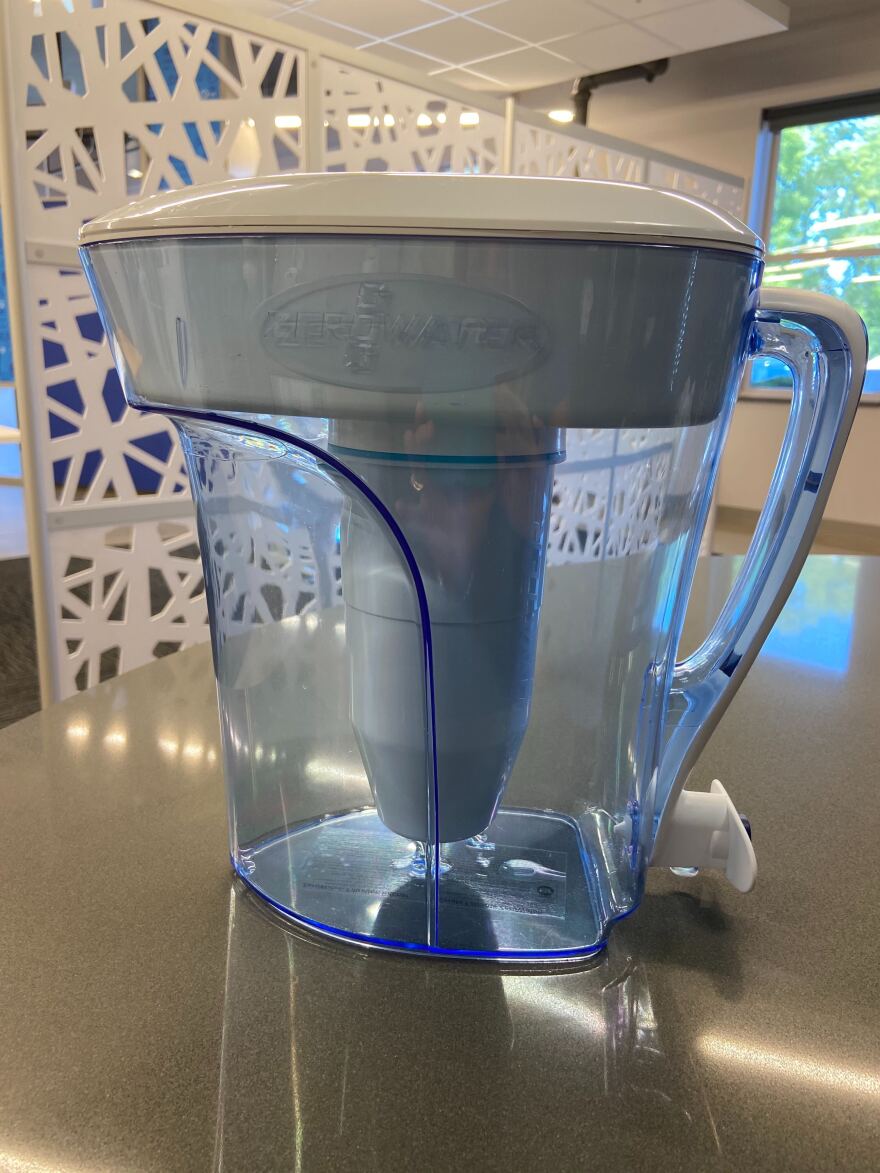The state has a new effort to protect low-income pregnant women and their babies from arsenic exposure using the WIC food assistance program.
The program will give out water pitchers with a three-year supply of arsenic filters to pregnant WIC users with unsafe arsenic levels in their home wells. It’s paid for by the state drinking and groundwater trust fund.
Arsenic is a carcinogen that can harm babies’ development in utero and early childhood. The state recently cut its standard for arsenic in drinking water in half, becoming only the second state to differ from the federal arsenic limit.
WIC program administrator Lissa Sirois, with the Department of Health and Human Services, said their first client whose private well was tested had a high enough arsenic level to qualify.
"We're lucky enough that we have the funding to extend it to after the baby is born,” Sirois said. “So when moms are preparing formula, it makes us feel better to know that she'll have a safe water source too."
She said they opted to provide pitchers instead of well upgrades or faucet filters because many WIC users may not have a stable address, or may not be able to do major renovations if they rent their homes.
The program is the first collaboration between WIC and the Department of Environmental Services. Drinking water bureau administrator Paul Susca said participants are asked to come to WIC offices to receive their replacement filters, instead of having them delivered.
“We’re hoping that over a period of several years, they’ll develop the habit of taking that action themselves, and that when the project is over…they’ll continue to do that,” he said.
The filters are commercially available from stores like Walmart or Amazon for about $15 apiece – the pitcher itself is listed around $26 on Amazon. Susca said their goal is to empower and encourage families with wells to conduct routine drinking water testing and maintenance.
The project stems from Dartmouth research on the prevalence and health effects of arsenic in New Hampshire. Susca expects at least 500 current WIC clients will be eligible for a pitcher.
About half of New Hampshire residents use private wells, and about a quarter of those have unsafe levels of arsenic under the new state standard. The toxin is mostly naturally occurring in the region’s granite bedrock.








